Asian-Pacific Resource and Research Centre for Women (ARROW)
Sivananthi Thanenthiran, Executive Director
For me, being a SheDecides champion means building a movement around the idea that choices and decision-making around sexual and reproductive lives need to be put back in the hands of women and young people in all our diversities.
SheDecides provides a platform for activists, governments, UN stakeholders, and young people to mobilise and make changes around bodily autonomy and bodily integrity, which are at stake across many countries.
This is why SheDecides is such a powerful platform. It brings together the like-minded who also believe these rights need to be upheld and advanced.
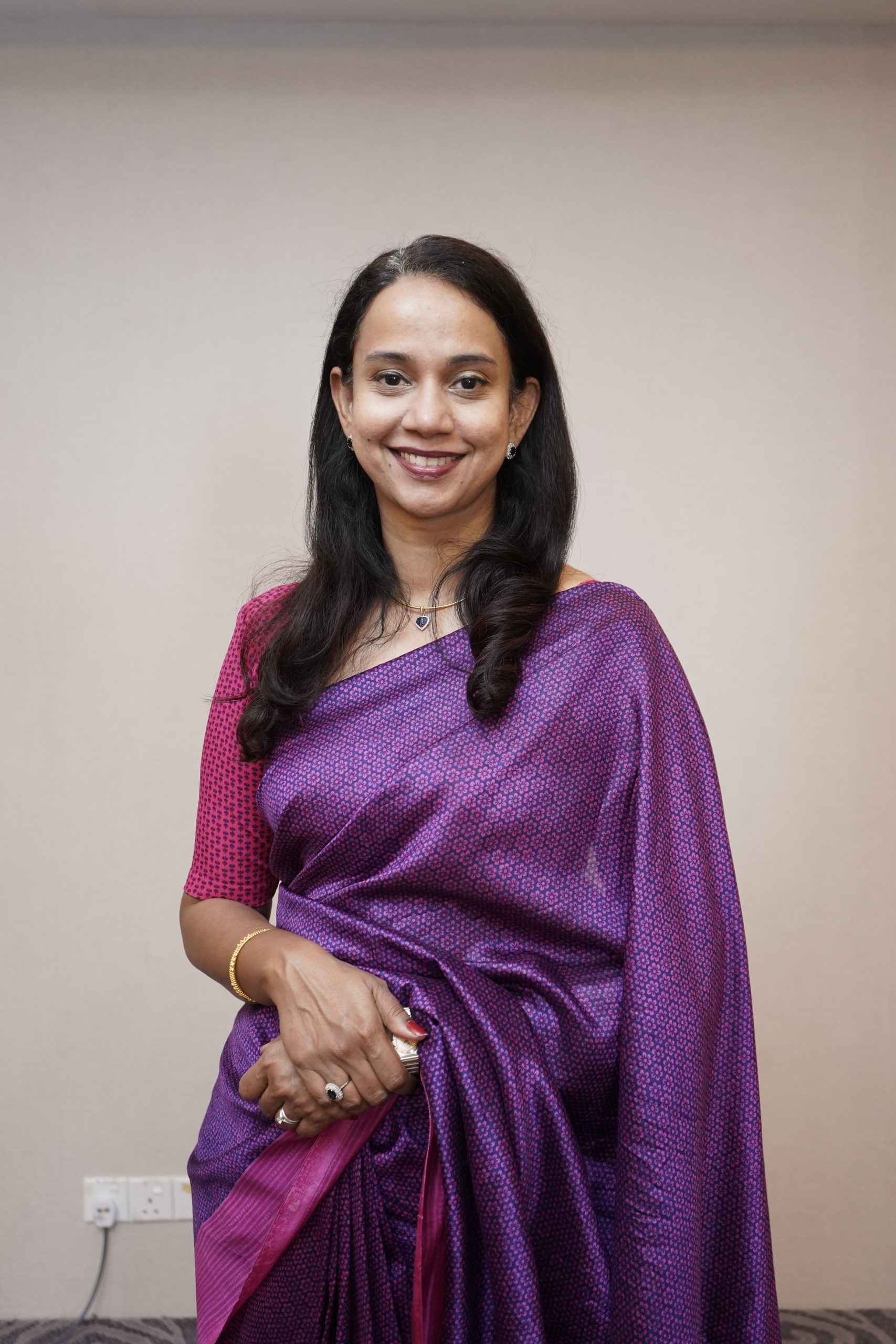
Why is bodily autonomy a priority for ARROW? What other (linked) issues are a priority?
When a society is unable to progress, it is because that society is stuck at this level—whether this is about access to contraception for unmarried young people, access to safe abortion services, comprehensive sexuality education, or recognising the rights of the marginalised groups.
As an organisation championing sexual and reproductive rights, we have identified that the last mile issues are always around recognising bodily autonomy and bodily integrity of women and young people in all our diversity.
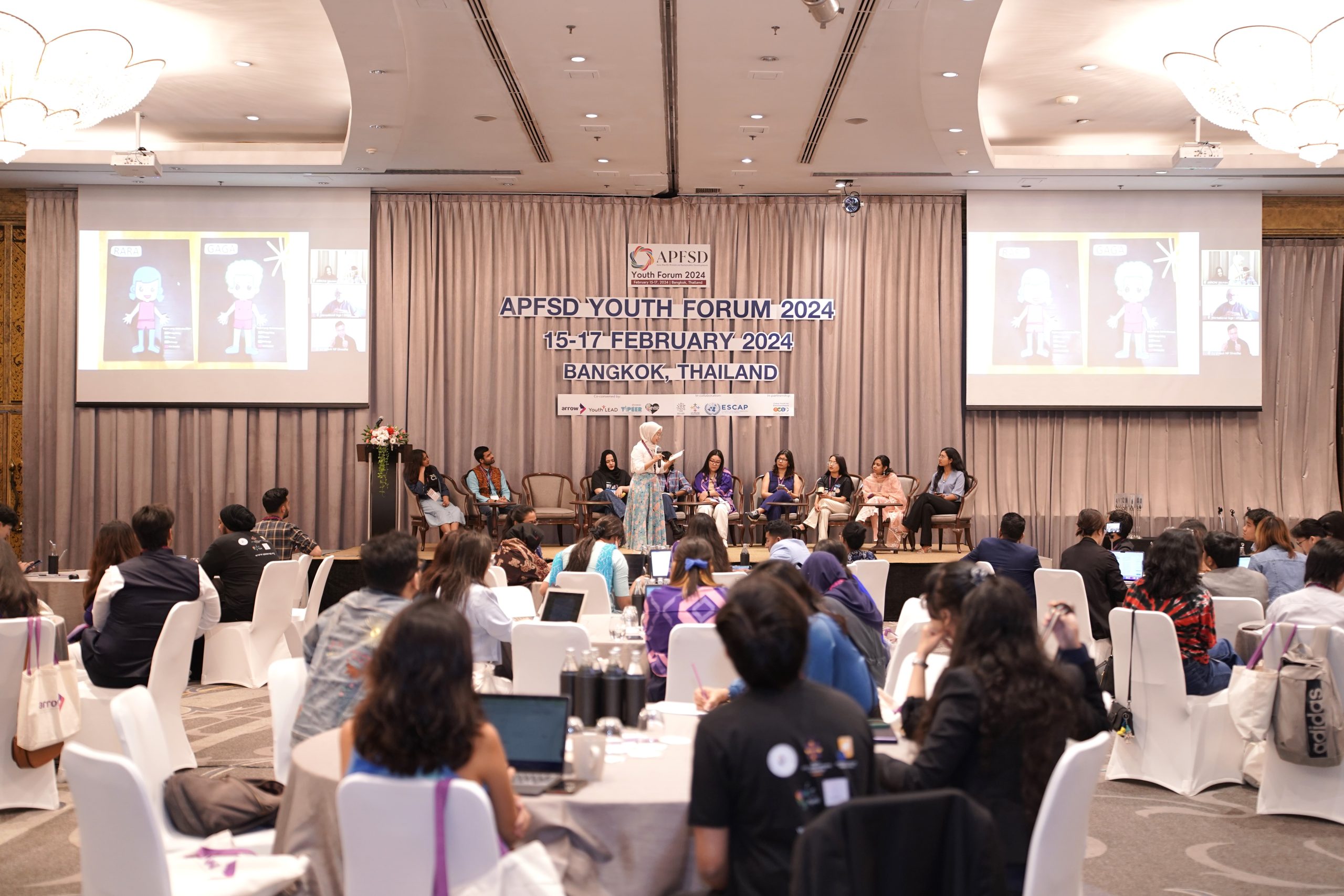
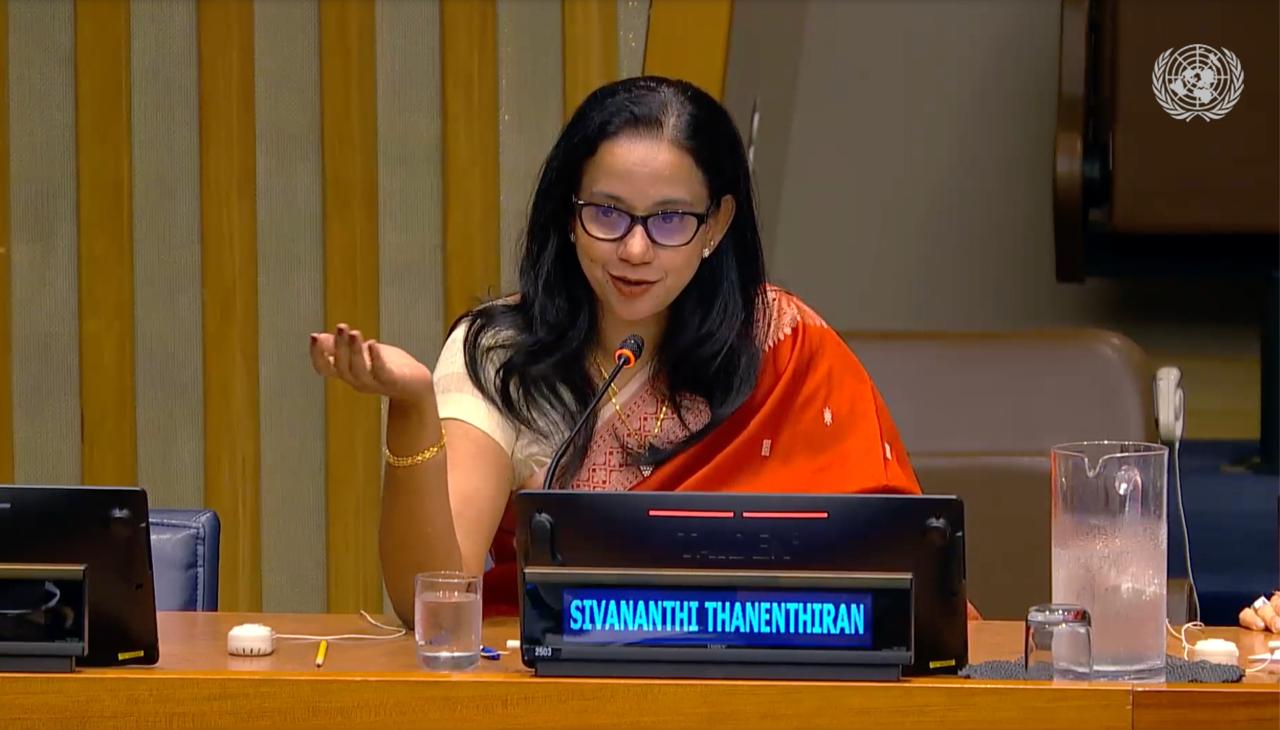
How we are working so SheDecides
Through engagement at key advocacy spaces, alliances and the creation of new civic spaces, ARROW and partners effectively demand accountability to sexual and reproductive health and rights and justice (SRHRJ) and human rights standards at the national, regional and global levels. This is done by targeting decision-makers and duty-bearers to approve, adopt, and implement laws and policies that protect the sexual and reproductive health and rights (SRHR) of women and young people in all their diversities.
Read MoreARROW and Partners at Key Advocacy Spaces
ARROW advocates for SRHRJ by reorienting, supporting, and improving policies and programmes at national, regional and global levels. The advocacy approach is grounded on strengthened capacities of the national partners and regular evidence generation to influence intergovernmental negotiations and advocate for progressive SRHR language and commitments through written, oral, and parallel interventions and collaborations. ARROW regularly advocates for expanded civic space and meaningful engagement in political arenas related to SRHRJ.
We engage at key advocacy spaces including the CSW, CPD, HLPF and UNGA as well as human rights accountability focused processes and mechanisms such as the Universal Periodic Review (UPR) and Convention on the Elimination of All Forms of Discrimination Against Women (CEDAW) as well as other influential spaces (COP). Additionally, for the past seven years, ARROW has also created significant advocacy spaces for young people and other stakeholders in the region like the APFSD Youth Forums, the multi-stakeholder dialogue and CSO consultations prior to the Seventh Asian and Pacific Population Conference (7th APPC) and Regional Asia Pacific and the Pacific Multistakeholder Dialogue on Comprehensive Sexuality Education.
Read More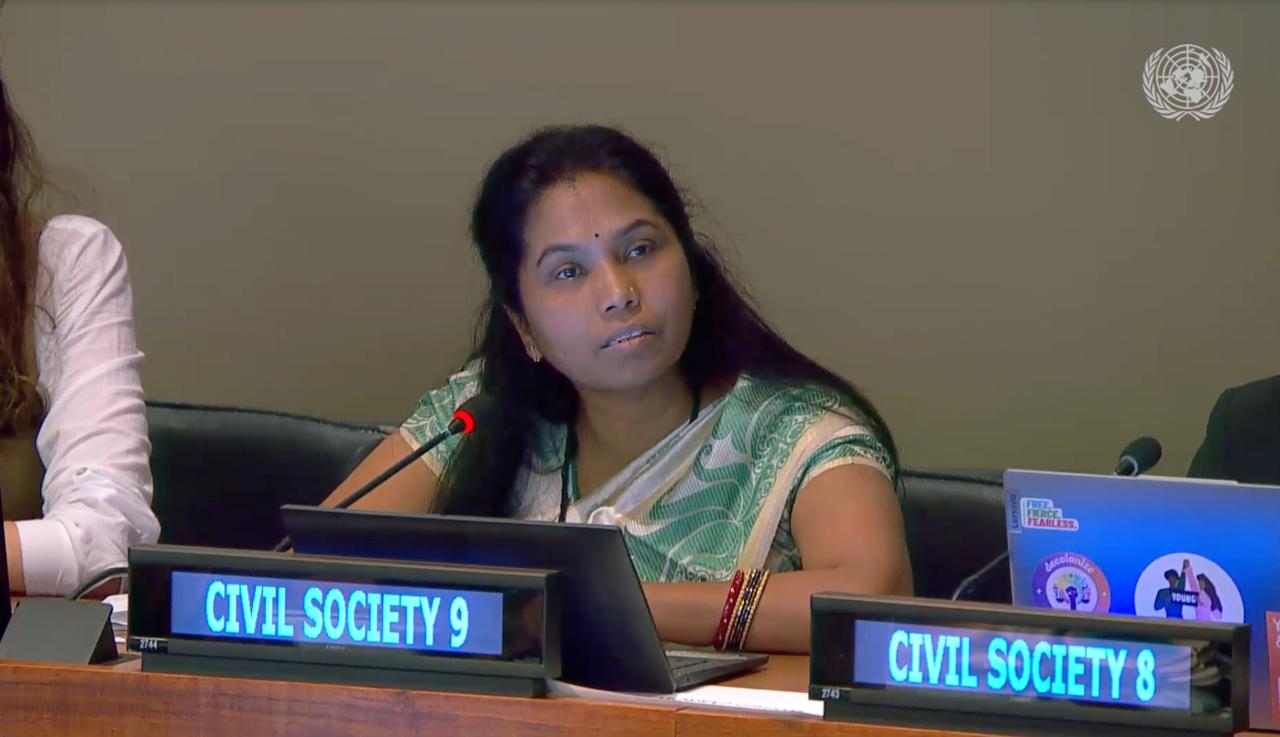
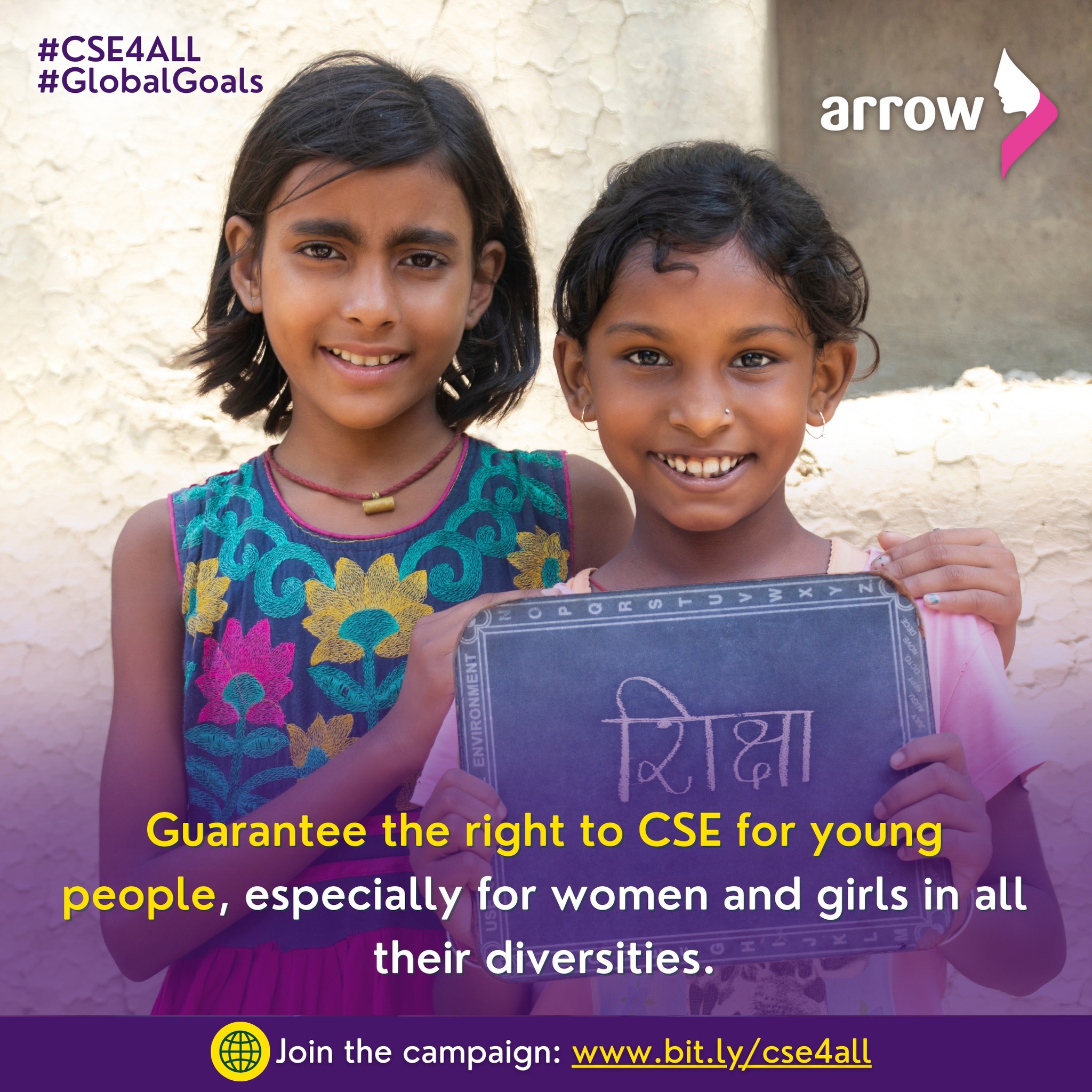
Comprehensive Sexuality Education (CSE)
For ARROW, championing the rights and sustainable development of young people is a core focus. This is visible in our work on CSE, and access to sexual and reproductive health (SRH) services. Our work is firmly rooted in collaborations with youth-led and youth-serving organisations in Nepal, India, Pakistan, Bangladesh, and Indonesia. These partnerships also include Right Here Right Now.
Furthermore, through regional convenings, we have reached young people in at least 36 countries in the region. We promote CSE through multi-stakeholder dialogues and dedicated forums, such as the Asia-Pacific Forum on Sustainable Development (APFSD) Youth Forum, with governments, UN agencies and civil society, including youth-led and youth-serving organisations.
ARROW actively advocates for the inclusion of CSE in the outcome documents at spaces such as CSW, CPD, HLPF, and the Human Rights Council. We expand civic space for young people to advocate for their human rights, including CSE, by also engaging in youth-led research and campaigns such as the #CSE4ALL campaign.
Read MoreAsia-Pacific Forum on Sustainable Development (APFSD) Youth Forum
Since 2017, in the lead-up to the APFSD Intergovernmental Fora, ARROW has organised the ESCAP-recognised annual APFSD Youth Forum as one of the co-conveners for young people’s engagement in the regional mechanism. The forum is key for the review and follow-up of the SDG implementation. It is part of ARROW’s continued initiative to expand the civic space for young people in the SDG follow-up and review mechanism. Additionally, it also ensures outcome documents recommend young people’s SRHR as a priority for the governments in Asia and the Pacific region.
In 2024, the Youth Forum provided access to 450 young people from across 36 countries. It resulted in the development of one Regional Youth Call-to-Action and 25 country specific Youth Call-to-Actions. The Regional Youth Call-to-Action fed into the 11th APFSD and the ECOSOC Youth Forum 2024, and will inform advocacy at the High-Level Political Forum 2024 and Summit of the Future taking place in September 2024.
The same year, an innovation exhibition showcasing the initiatives of 17 youth changemakers was also featured at the Youth Forum. The initiatives mainly focus on climate action, gender equality, health, including SRHR and CSE, and human rights.
Read More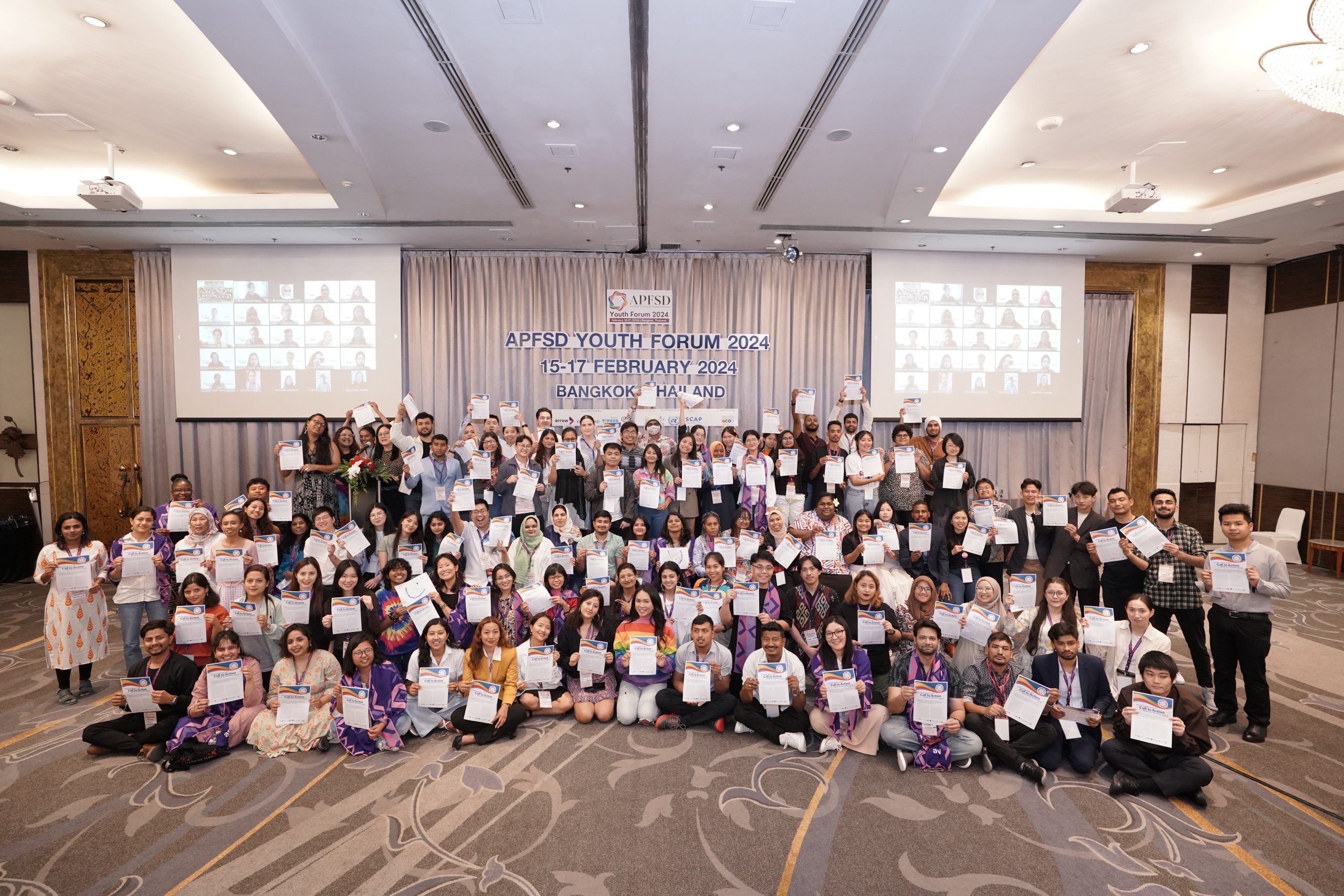
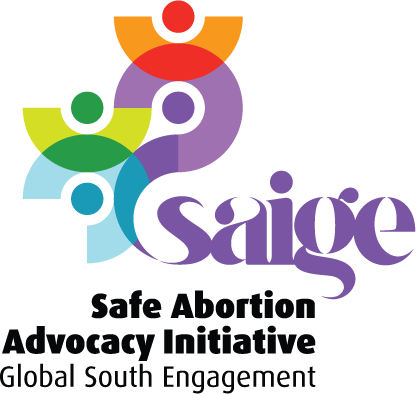
Safe Abortion Advocacy Initiative – A Global South Engagement (SAIGE)
Safe Abortion Advocacy Initiative – A Global South Engagement (SAIGE) is a network of Global South advocates, activists, academics, and service providers committed to realising safe abortion as a human right. It is co-created by ARROW, Association for Prevention of Septic Abortion, Bangladesh (BAPSA), Beyond Beijing Committee (BBC) Nepal, Women's Global Network for Reproductive Rights (WGNRR) – Philippines, and Reproductive Health Association of Cambodia (RHAC). SAIGE members drive the abortion-rights movement forward by calling for increased access to safe abortion services, demanding governments to decriminalise abortion, and mobilising communities to end stigma on abortion.
Read MoreARROW’s RHRN Changemakers Programme
ARROW’s RHRN Changemakers Programme is a leadership programme that blends design thinking, social entrepreneurship and social innovation. It lends social innovation, intersectionality and sexuality to empower diverse young people to become effective advocates for social change around young people’s sexual and reproductive health and rights and develop themselves as social change entrepreneurs. As part of this initiative, ARROW was able to develop 16 seed grant scholars.
Read More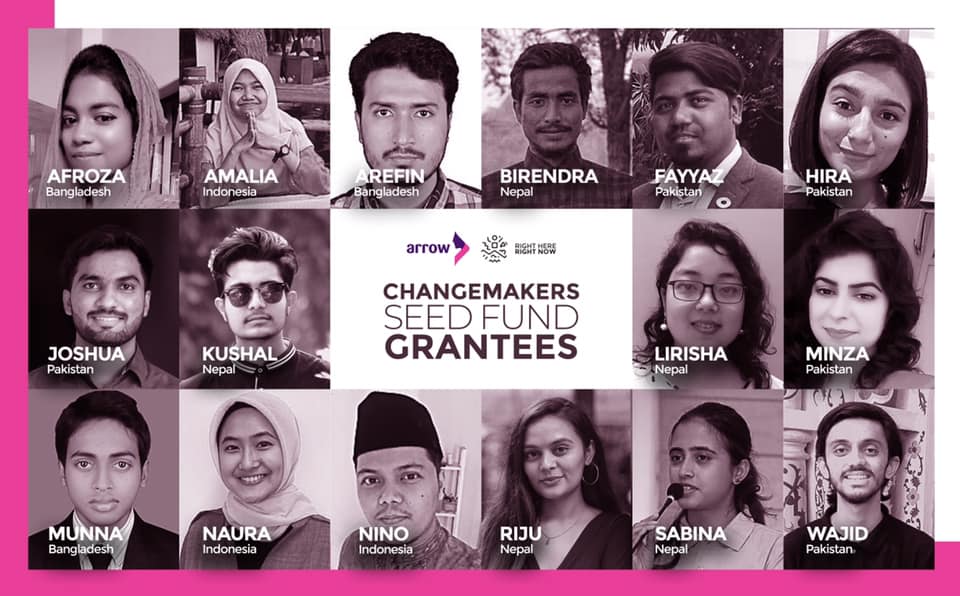
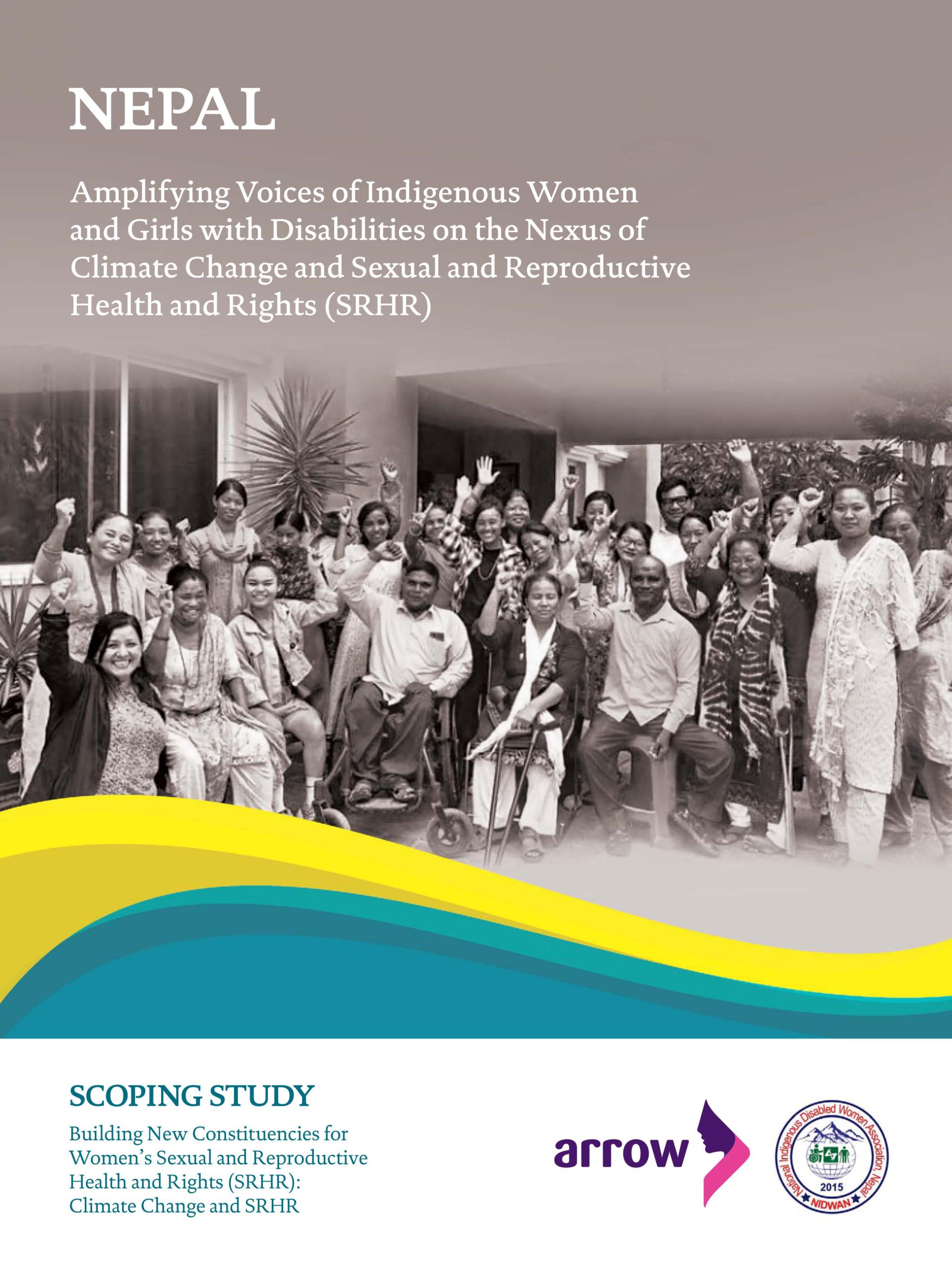
Amplifying Voices of Diverse Women in Asia and Pacific on the Nexus of Climate Justice and SRHR
In Asia-Pacific, more than 100 million people are affected annually by climate-related events. Climate change has exacerbated the challenges that many poor and marginalised women and girls are already facing due to gender inequality. Despite this reality, SRHR is rarely taken into account in the context of climate change and in climate action.
ARROW is currently working with five national partners to implement national and regional advocacy in UNFCCC spaces like the Conference of Parties (COP) and Special Bodies Process in Bonn. ARROW is also a co-convenor of the SRHR and Climate Justice Coalition; a member of the Gender and Environment Data Alliance and a member of the Women and Gender Constituency.
Read MoreAsia Network to End FGM/C
The Asia Network to End Female Genital Mutilation/Cutting (FGM/C) is a collaborative group of civil society actors working to end all forms of FGM/C, a harmful practice that is highly prevalent but often ignored in Asia.
Led by ARROW and the Orchid Project, the Network has grown to over 100 members across 12 countries. Members conduct strategic advocacy at national, regional and UN levels and platforms; research and evidence generation; engagement with key stakeholders, including religious scholars, medical practitioners, policymakers, and communities; and support for grassroots and survivor voices.
Read More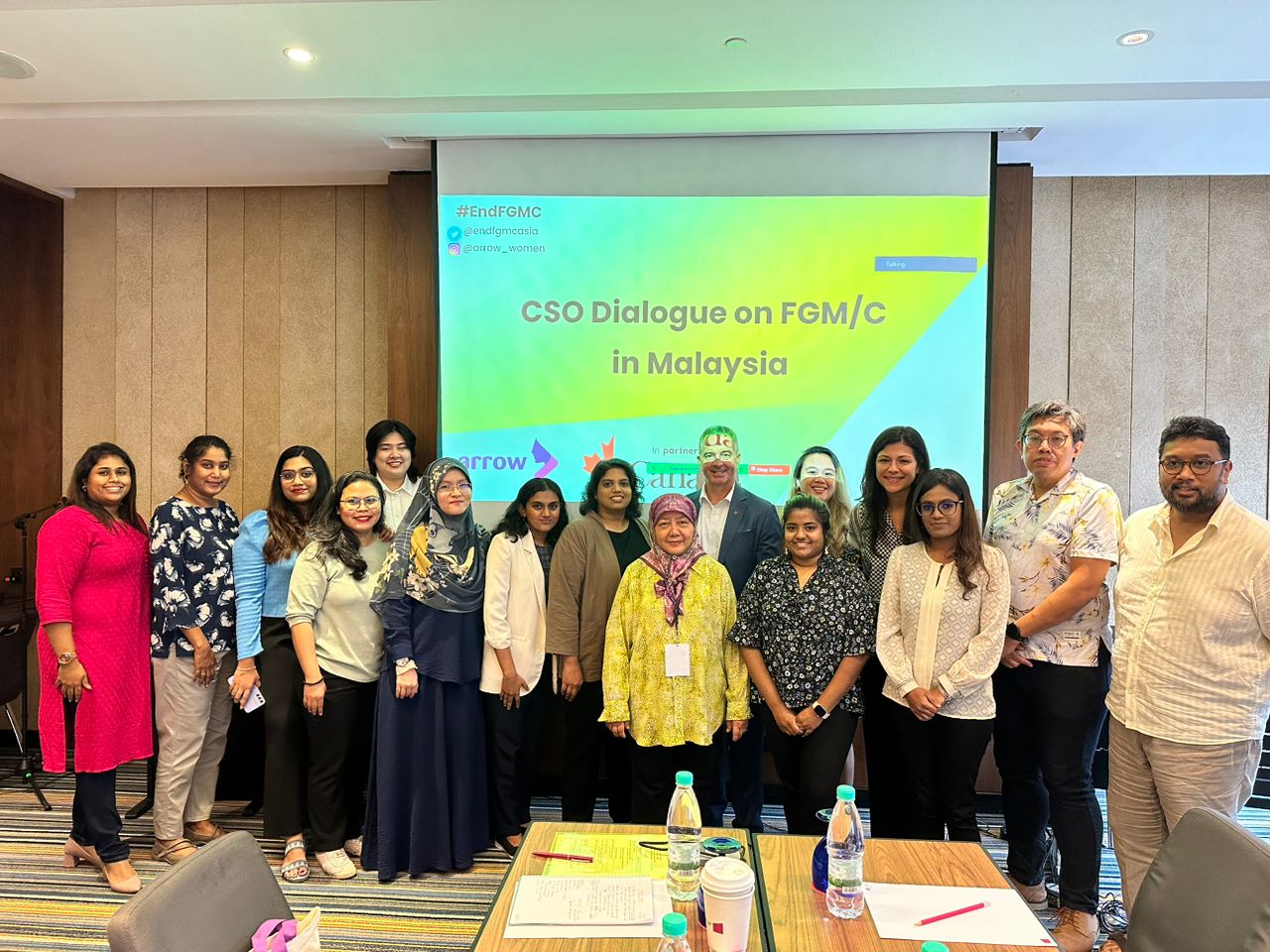
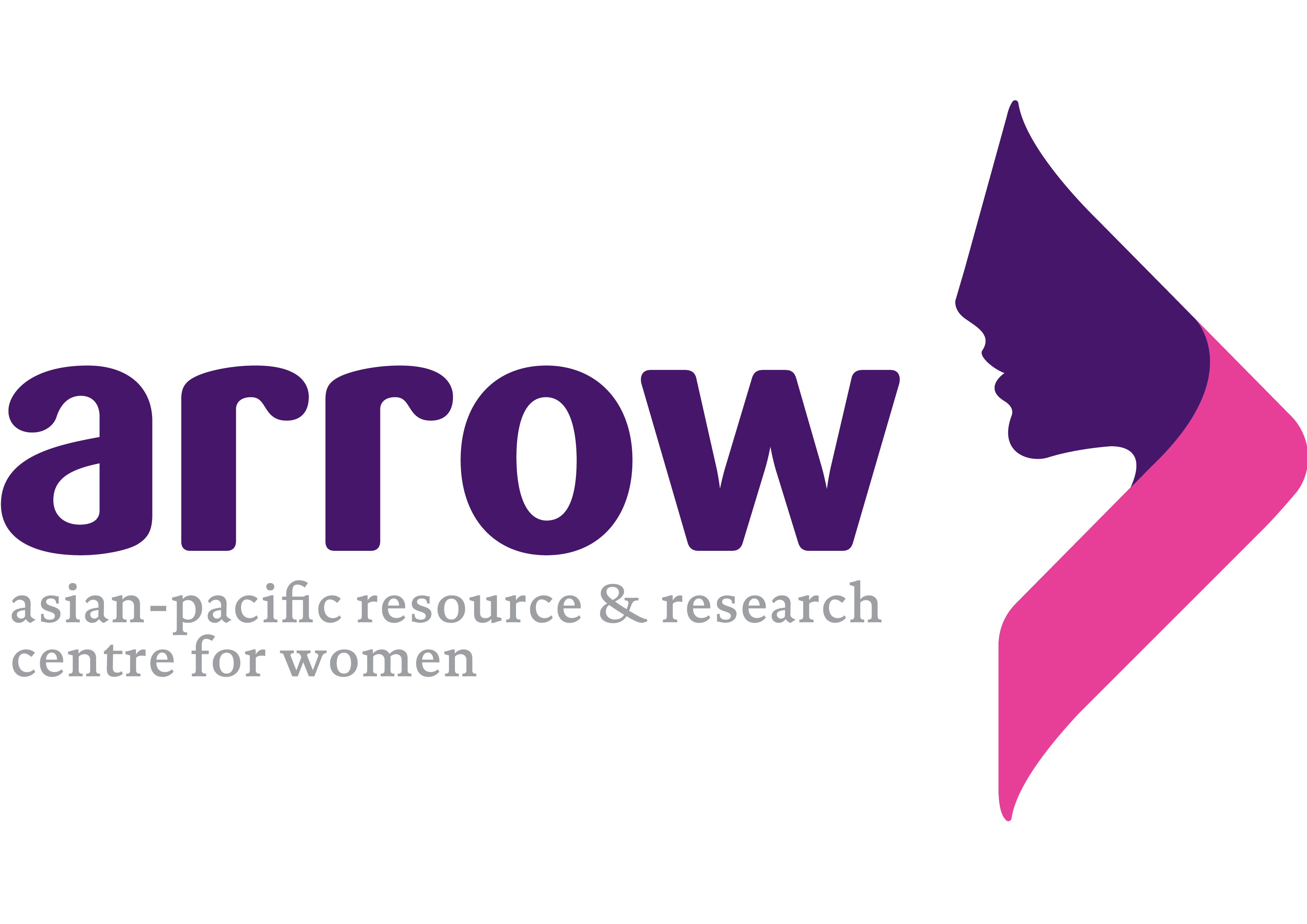
About the Asian-Pacific Resource and Research Centre for Women (ARROW)
ARROW strives to enable women, non-binary people and young people to be equal citizens in all aspects of their lives by ensuring their sexual and reproductive health and rights are achieved.
Established in 1993 upon a needs assessment arising out of a regional women’s health project, where the originating vision was to create a resource centre that would ‘enable women to better define and control their lives’, ARROW is a regional non-profit women and young people’s organisation based in Kuala Lumpur, Malaysia.
ARROW has consultative status with the Economic and Social Council (UN ECOSOC) of the United Nations. It works closely with many national partners in countries, regional and global networks around the world, and is able to reach stakeholders in 120 countries.
Read More
